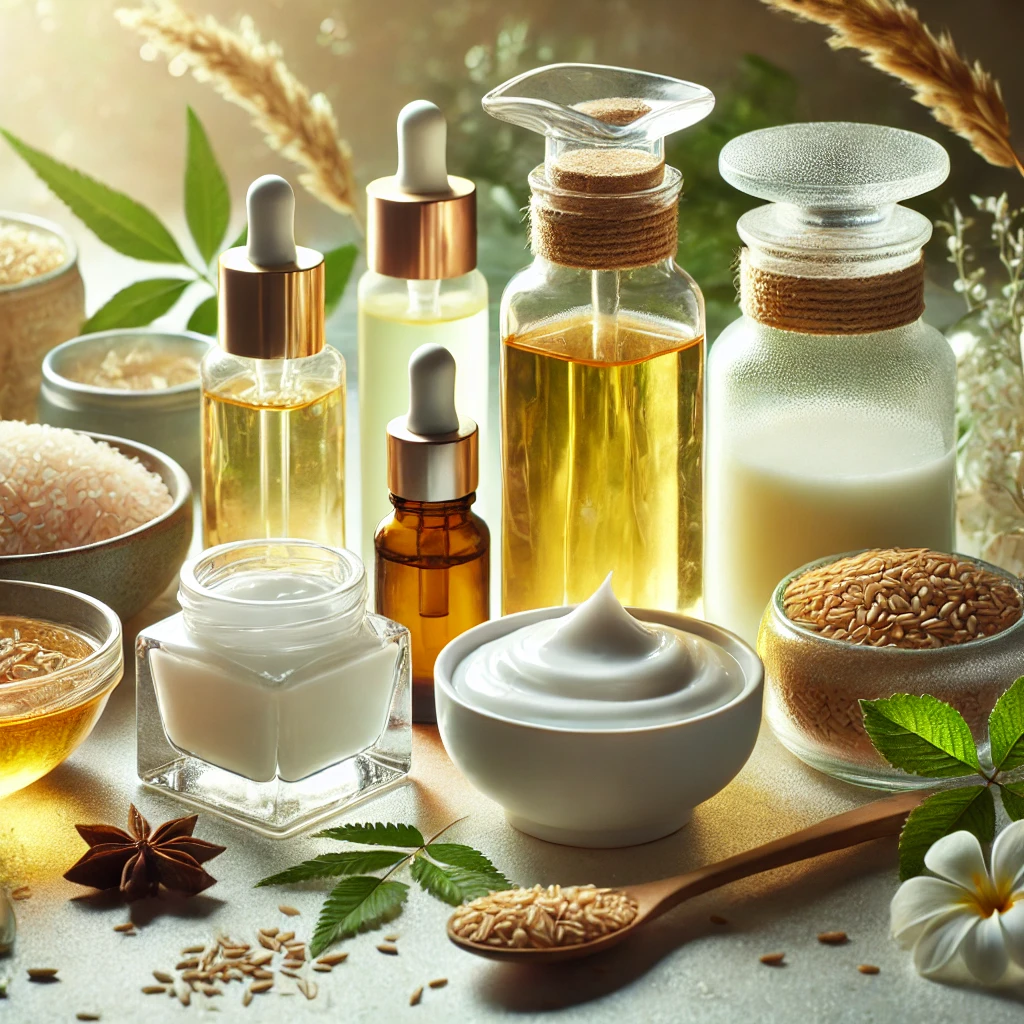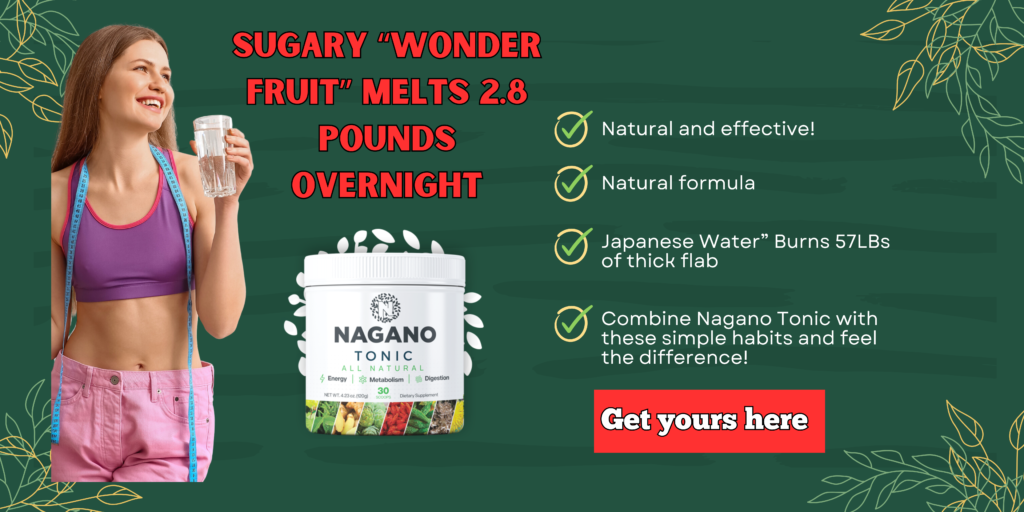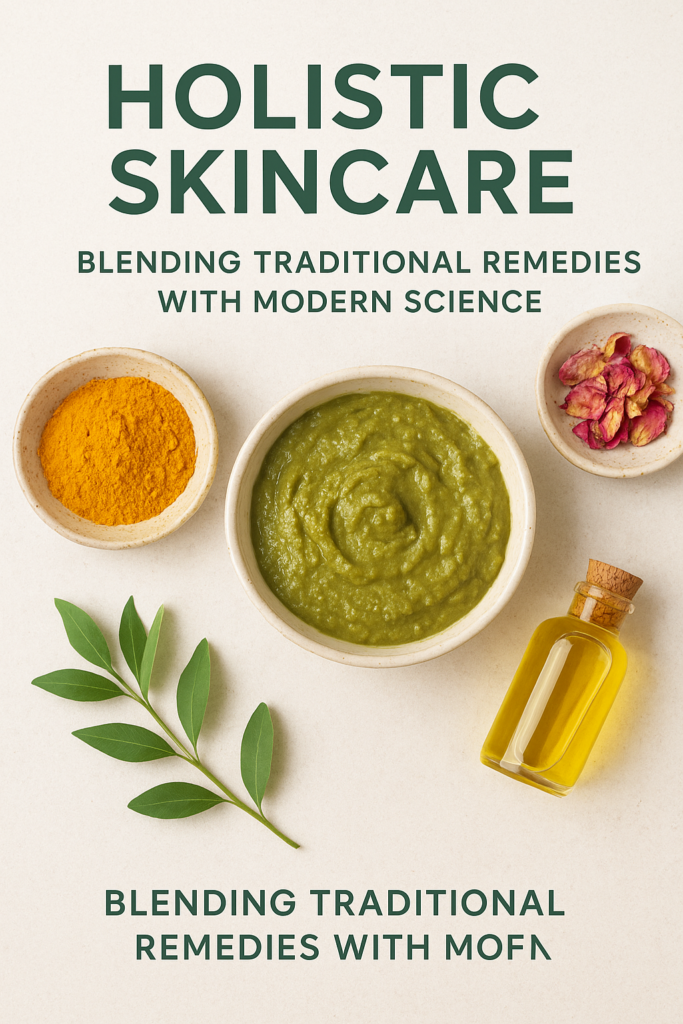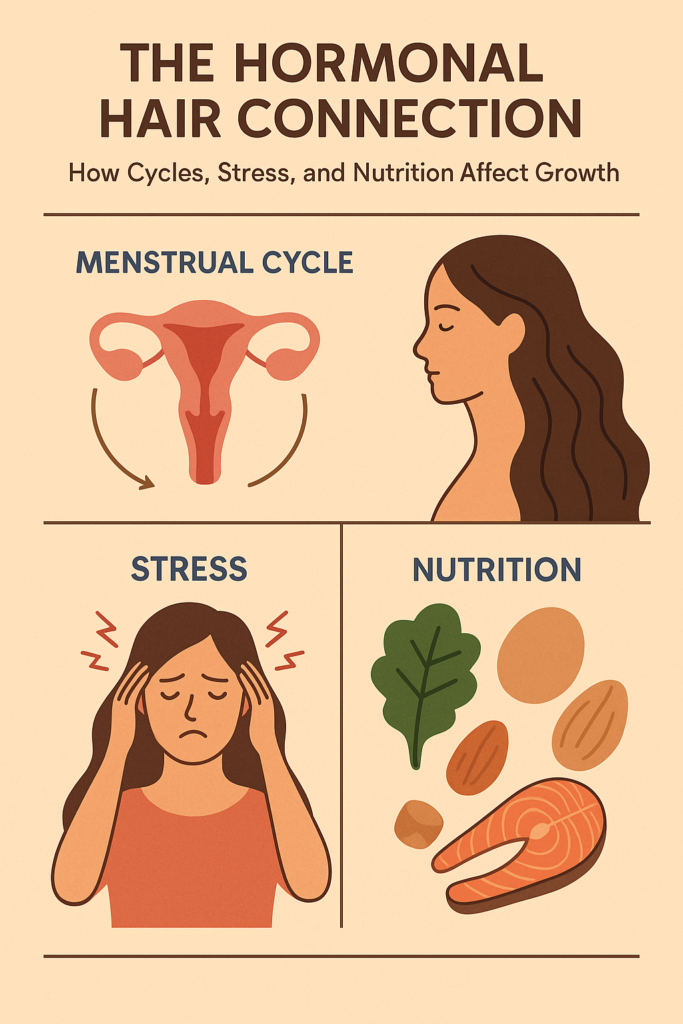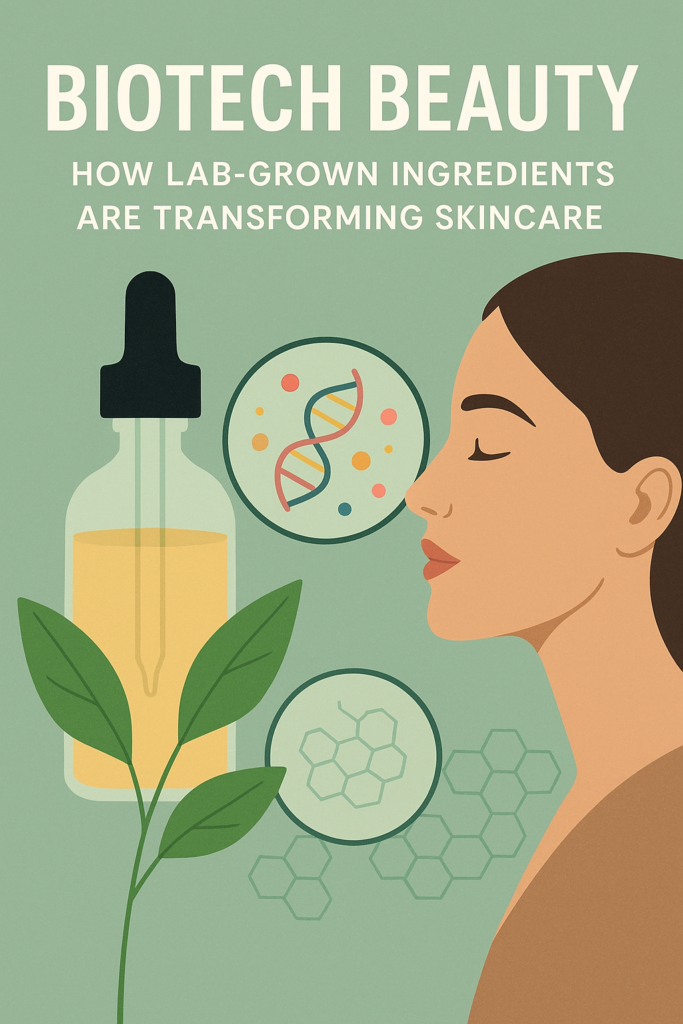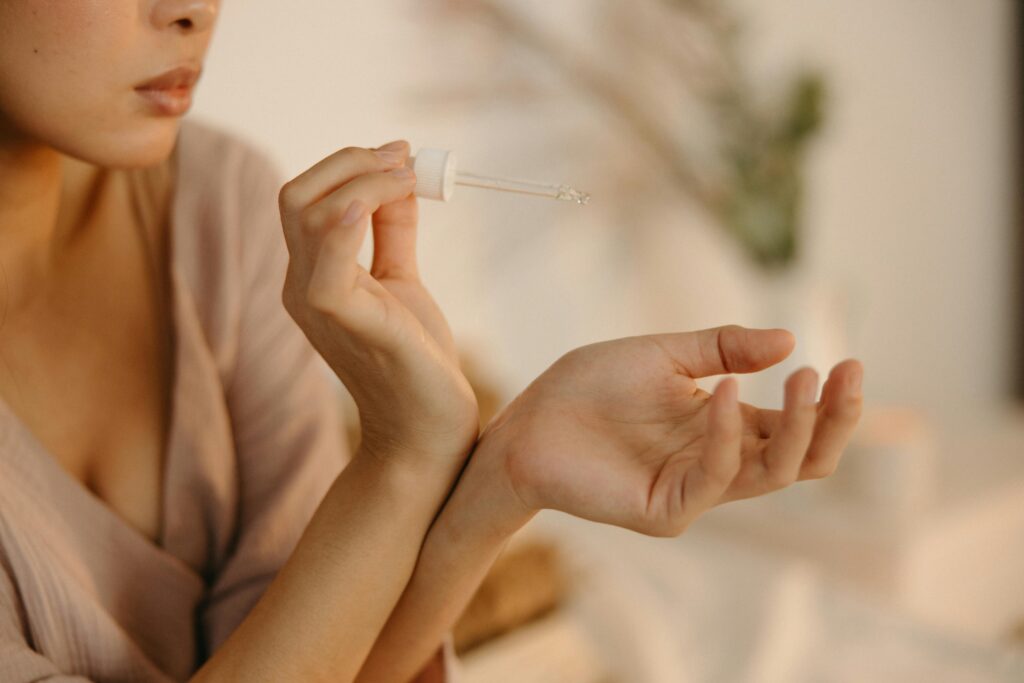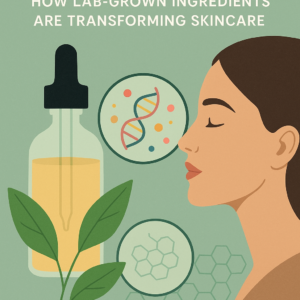Fermented Cosmetics: The Secret to Natural and Effective Beauty
In recent years, fermented cosmetics have been gaining popularity in the beauty market. This trend, already well-established in Asia, especially in South Korea and Japan, promises healthier and more radiant skin in a natural way. But what exactly are fermented cosmetics? How do they work, and what are their benefits? In this article, we will explore everything about this new skincare favorite and understand why it can be an excellent choice for your beauty routine.
What Are Fermented Cosmetics?
Fermented cosmetics are skincare products that undergo a fermentation process before being used. This process involves microorganisms such as bacteria and yeasts, which transform active ingredients, making them more potent and easier for the skin to absorb.
During fermentation, ingredient molecules break down into smaller particles, allowing them to penetrate deeper layers of the skin. Additionally, new beneficial substances are produced, such as amino acids, vitamins, and bioactive acids, which enhance the product’s effects.
Benefits of Fermented Cosmetics
Fermented products offer numerous benefits for the skin, making them an attractive option for those seeking effective and natural treatments. Here are some of the main advantages:
✅ Better Absorption of Active Ingredients: Fermented ingredients are broken down into smaller particles, making them easier for the skin to absorb and ensuring a more potent and long-lasting effect.
✅ Powerful Antioxidant Action: Fermentation increases the production of antioxidants, which combat free radicals and help prevent premature aging.
✅ Strengthening the Skin Barrier: Fermented products help reinforce the skin’s natural barrier, making it more resistant to external aggressors such as pollution and climate changes.
✅ Balancing the Skin Microbiota: Just like probiotics benefit the gut, fermented ingredients help balance the skin microbiota, preventing issues like acne and excessive sensitivity.
✅ Reduced Sensitivity: Due to their gentler composition, these products are ideal for sensitive and irritation-prone skin.
✅ Deep Hydration: The acids and amino acids present help retain skin moisture, promoting intense and long-lasting hydration.
How Are Fermented Cosmetics Made?
The fermentation process occurs when microorganisms, such as lactobacilli and yeasts, break down natural ingredients into smaller, more easily absorbed components. This process can take days or even weeks, depending on the substance used.
Common ingredients found in fermented cosmetics include:
- Green tea
- Ginseng
- Rice extract
- Fruits like pomegranate and blueberry
- Aloe vera
- Mushrooms
Each ingredient, when fermented, enhances its properties, making the final product more effective than its non-fermented version.
What Types of Fermented Products Are Available?
Fermented cosmetics come in various categories, including:
- Toners and Essences: Prepare the skin to absorb other products, enhancing their effects.
- Serums and Ampoules: Concentrated treatments that target specific issues, such as wrinkles and dark spots.
- Moisturizing Creams: Provide deep hydration and long-lasting nourishment.
- Facial Masks: Offer intensive skin treatment and renewal.
- Hair Care Products: Some shampoos and conditioners use fermentation to improve scalp and hair health.
How to Incorporate Fermented Cosmetics into Your Beauty Routine?
If you want to try this trend, follow these tips to include fermented cosmetics in your routine:
1️⃣ Start with a Toner or Essence: These lightweight products are ideal for testing how your skin adapts to new ingredients.
2️⃣ Invest in Serums: If your skin needs hydration or anti-aging treatment, fermented serums can be a great choice.
3️⃣ Use Facial Masks Once or Twice a Week: This helps revitalize the skin and boost hydration and nutrition.
4️⃣ Avoid Using Strong Acids Simultaneously: Since fermented products already contain natural acids, adding extra acids can cause irritation in sensitive skin.
5️⃣ Combine with Your Current Routine: Fermented cosmetics can be used alongside other skincare products, as long as there are no ingredient conflicts.
The Future of Fermented Cosmetics
The popularity of fermented cosmetics continues to grow as more people seek natural and effective skincare alternatives. Brands are increasingly investing in research and development to bring new products with innovative formulations.
Moreover, fermentation is a sustainable process, as it allows for the full use of natural ingredients, reducing waste and promoting more conscious and eco-friendly beauty.
Conclusion
Fermented cosmetics are an innovative and promising trend in the beauty industry. With benefits such as better nutrient absorption, antioxidant action, deep hydration, and skin microbiota balance, these products can transform your skincare routine.
If you’re looking for a natural and effective way to care for your skin, it’s worth trying this new generation of cosmetics. Keep an eye on new releases and discover the power of fermented ingredients for healthy and radiant skin!
Have you tried fermented cosmetics? Share your experience in the comments!
Holistic Skincare
Holistic Skincare – Blending Traditional Remedies with Modern Science In the ever-evolving world of beauty,…
A Conexão Capilar Hormonal
The Hormonal Hair Connection – How Cycles, Stress, and Nutrition Affect Growth Hair is often…
Biotech Beauty – How Lab-Grown Ingredients Are Transforming Skincare
The Rise of Biotech in the Beauty World In recent years, the beauty industry has…
Natural Fragrance Oils vs. Synthetic Perfumes
Natural Fragrance Oils vs. Synthetic Perfumes – What’s Better for Your Skin? Perfume is often…
Herbal Face Steaming Rituals from Around the World
Herbal Face Steaming Rituals from Around the World – Detox, Relax, Glow In today’s fast-paced,…
The Crystal Skincare Trend – Beauty Tools Charged with Energy
In the ever-evolving world of beauty and wellness, a fascinating trend is capturing the attention…
Forest Beauty
Forest Beauty – How Nature-Based Rituals Like Shinrin-Yoku Enhance Skin and Mood In an age…
DIY Rice Water and Fermented Rinses
DIY Rice Water and Fermented Rinses – Do They Really Work for Hair Strengthening? In…
Caffeine for Hair Growth
Caffeine for Hair Growth – What the Science Says and How to Use It In…
Hair Loss After COVID
Hair Loss After COVID – Understanding Telogen Effluvium and How to Treat It Hair loss…
The Rise of Ayurvedic Hair Care in the U.S.
The Rise of Ayurvedic Hair Care in the U.S. – Herbs and Rituals for Stronger…
Scalp Health Is the New Skincare
Scalp Health Is the New Skincare – Treatments That Start at the Root In the…
The Retinol Revolution
The Retinol Revolution – Gentle Alternatives for Sensitive Skin Without Sacrificing Results Retinol has long…
The Power of Probiotic Skincare
The Power of Probiotic Skincare – Balancing the Skin Microbiome Naturally The term “microbiome” has…
Blue Light and Your Skin
Blue Light and Your Skin – The Hidden Damage of Screen Exposure and How to…
Slugging 2.0
Slugging 2.0 – Advanced K-Beauty Hydration Technique That’s Taking Over TikTok Beyond Basic Slugging In…
The Rise of Skin Cycling
The Rise of Skin Cycling – How to Build a Rotating Skincare Routine for Maximum…
Reflexology and Its Effects on Health and Beauty
Healing Through the Feet – Reflexology and Its Effects on Health and Beauty In today’s…
Natural Remedies for Skin Spots
Natural Remedies for Skin Spots – Little-Known Alternatives That Really Work Skin spots, also known…
Therapeutic Tattoos
Therapeutic Tattoos – How Tattoos Can Help Boost Self-Esteem for People with Scars Scars tell…

